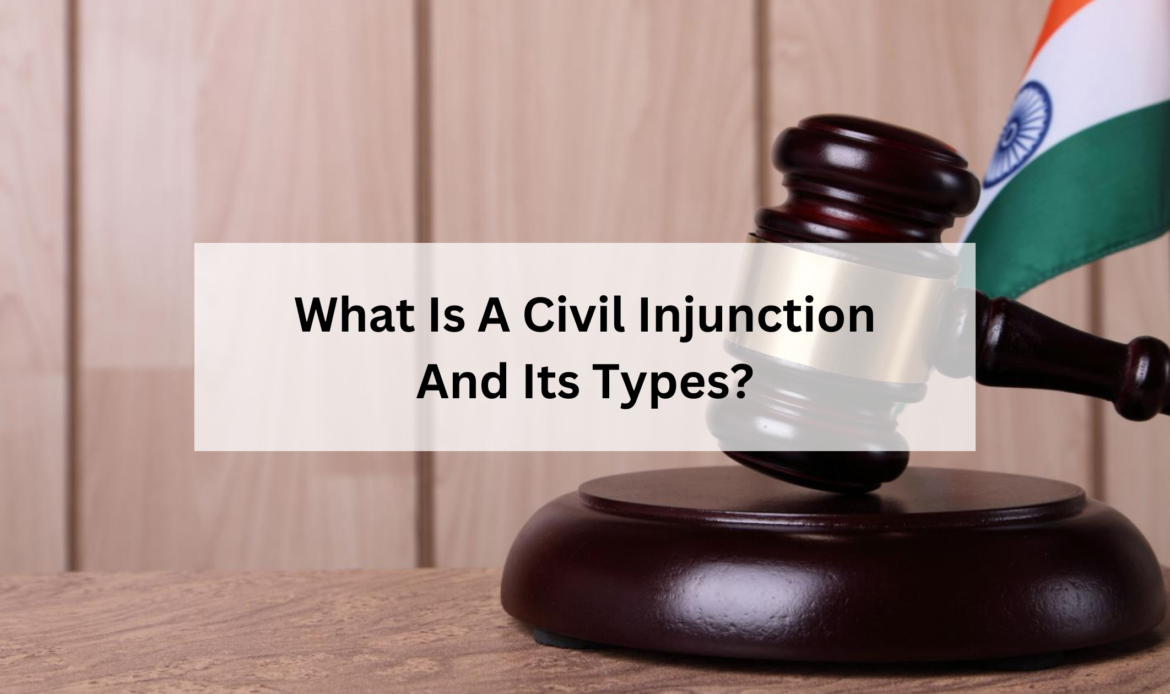Have you ever faced a situation where someone’s actions could harm you or your property? What if money alone can’t fix the problem? Well, in such situations, the civil injunction comes into play. They are court orders that tell people what they can or cannot do. They protect rights and prevent harm when other solutions fall short.
Civil injunctions are crucial in many legal battles. Imagine your neighbour starts building a wall that encroaches on your land. Or a company threatens to release a product that uses your secret formula. In such cases, waiting for a full trial might be too late.
But what exactly are civil injunctions? And how do they work in India? This blog will guide you through the different types of civil injunctions. It will explain how they help protect your rights and interests. Let’s dive in and explore it in detail.
Civil Injunction: What Do You Mean By It?
A civil injunction is a court order that requires a party to do or refrain from doing specific acts. This legal remedy is essential in situations where monetary compensation is inadequate. Injunctions ensure that justice is upheld by either maintaining the status quo or preventing irreparable harm.
Importance of Civil Injunctions
Civil injunctions play a crucial role in the legal landscape. They protect individuals and entities from actions that could cause significant harm.
For instance, an injunction can stop the construction of a building that encroaches on another’s property. It can also prevent the disclosure of confidential information.
Types of Civil Injunctions
Civil injunctions come in various forms, each serving a distinct purpose. Here are the primary types:
- Temporary Injunction
A temporary injunction is also known as an interim injunction. It is granted to maintain the status quo until the court makes a final decision. It is often issued in urgent situations where immediate action is necessary to prevent harm.
Key Features:
- Short-term relief
- Issued before the final judgment
- Aims to prevent immediate harm
- Permanent Injunction
A permanent injunction is a final order given by the court after the case’s merits have been fully considered. This type of injunction offers lasting protection by prohibiting or mandating certain actions indefinitely. For example, if someone is found guilty of continuous trespassing, the court may issue a permanent injunction to stop this.
Key Features:
- Long-term relief
- Issued after a full hearing
- Provides lasting resolution
- Mandatory Injunction
A mandatory injunction compels a party to perform a specific act. This type of injunction is less common and is typically granted when merely prohibiting an action is insufficient to ensure justice.
For instance, if a contractor leaves a construction site unsafe, a mandatory injunction can require them to secure the area.
Key Features:
- Requires affirmative action
- Ensures specific tasks are performed
- Used when prohibition is inadequate
- Prohibitory Injunction
A prohibitory injunction, as the name suggests, restrains a party from carrying out certain actions. This is the most common type of injunction.
It prevents activities that could cause harm or violate rights. For instance, a prohibitory injunction can stop a company from releasing a product that infringes on a patent.
Key Features:
- Restrains specific actions
- Prevents harm or rights violations
- Most common type of injunction
The Process of Obtaining an Injunction
Obtaining an injunction involves several steps. Here’s a simplified overview:
- Filing a Petition: The affected party files a petition in the appropriate court. This petition outlines the facts, the relief sought, and the reasons why an injunction is necessary.
- Court Hearing: The court schedules a hearing to consider the petition. Both parties present their arguments and evidence.
- Court Decision: Based on the evidence and arguments, the court decides whether to grant the injunction. For temporary injunctions, this decision is often made quickly.
- Issuance of Injunction: If granted, the court issues the injunction, outlining the specific actions that must be taken or stopped.
- Enforcement: The injunction must be complied with. Failure to do so can result in legal penalties, including contempt of court charges.
Final Words
All in all, civil injunctions are vital in protecting rights and preventing harm. Each type of it serves a specific function in the justice system. Understanding them and their applications helps in appreciating the nuances of legal protections available under Indian law.
So, we can say that civil injunction provide a legal remedy that goes beyond financial compensation. They ensure that justice is served by maintaining order and preventing irreparable harm. If you want any more guidance in such cases, contact the best law firm in Kolkata. At Kshetry and Associates, we offer the best legal services in Kolkata.

